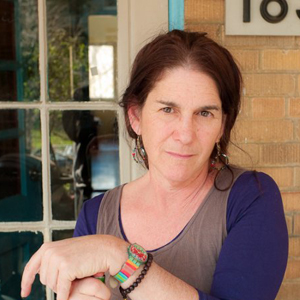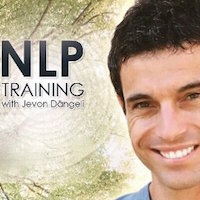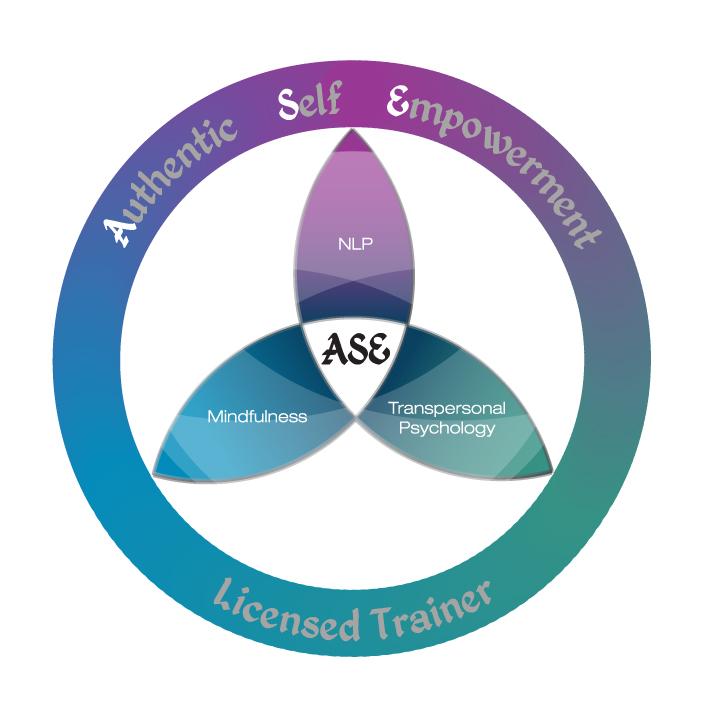Transpersonal Coaching & Therapy Network Forum
Use of this forum is exclusively for TCTN members.
.
For information about TCTN membership (free) visit the TCTN page.
.
Register or login below to add a new forum topic or respond to an existing topic.
Notifications
Clear all
Topic starter
17/01/2019 10:57 am
Frustration can be thought of in many different ways. For example when we feel a sense of overwhelm, overload in our life. It could also be when we are giving all of our efforts but cannot break through or there are too many hurdles and roadblocks to overcome.
So what's the message in this emotion? It could be that what you are currently doing isn't working and you just need to change your approach in order to achieve your goals. It could be a signal to take a different approach - greater flexibility. It's also a potential signal from your brain that you could be doing better than you currently are. Frustration when you are not reaching your objective, whereas disappointment is a feeling that there's something you want in your life you'll never get it. Frustration can be interpreted as a positive sign that with a few changes the solution is achievable. I am interested to hear if anyone has any possible way to deal with this emotion.
19/01/2019 10:36 am
Hey Tariq,
Thanks for your post and your perspective on the emotion of "frustration", Usually when working with these strong emotions, I use a mindfulness practice (for myself or when working with others) to sit with the emotion. I like to follow these steps 1) Ask what the trigger might be 2) Recongise the feeling tone of the emotion in the body e.g. tightness, heart racing, or other... 3) Label the emotion as an observer e.g. "I am aware that...." 4) Choose how to respond to it. Speaking directly to the emotion and asking why it is present, is helpful. I wrote an article on this recently which might resonate: https://www.julesdevitto.com/blog/cultivating-emotional-balance
So, the emotion of frustration could be a sign to change ones way of being, and the mindfulness practice may help gain insight into what needs to change. Or it could also arise because there is a resistance to acceptance of the present moment. Bringing acceptance to "what is" might allow the frustration to fade...
Jules
02/02/2019 5:32 pm
Hi Tariq and Jules,
The paradox for me, is that the people closest to us often frustrate us the most. Perhaps this is because we all have a certain tolerance level for frustration that becomes depleted after repeated exposure to a situation or a person that we find frustrating. So, it may be easier to manage our frustration at the beginning of a frustrating experience and with people we've only just met, and then as time passes and our frustration continues, our ability to manage it steadily decreases. Becoming more familiar with someone who frustrates us also plays an important role in the way that we feel less constrained about expressing our frustration. The people closest to us, like our close family members, are around us in the most personal areas of our lives and often limit our ability to find space or privacy to take a ‘time out’ so that we can regain an ability to tolerate the things that (and people who) frustrate us.
Trying to suppress or ignore frustration just seems to make it worse, and can cause us to fixate on whatever the complaint is that we have against who or what frustrated us. We lose sight of everything good and positive about the situation or person. We are in a state of tunnel awareness and our response is more likely to be words that are hurtful or actions that are negative, both of which we are likely to regret.
The most resourceful perspective that I have found to manage frustration involves a sense or a feeling of gratitude. Now days, when I become frustrated, I try to remind myself of as many things as possible that I appreciate about the person who has frustrated me. This is not always as easy as it sounds. Appreciating the people that we see every day, or are closest to, can actually be very challenging - they're the ones who are most likely to frustrate us, and they are also the people with whom we're usually the most familiar and therefore, these are the people with whom we are most likely to be unable to control our frustration. In this situation, we should remember that it is unlikely that we would have these people in our lives if they did not add value and meaning to our lives, and that reminding ourselves of their positive qualities shouldn't be too difficult.
In reality, gaining control over a frustrated outburst is often much more difficult than I have implied.
So … if we were able to cultivate a general attitude of gratitude in our daily life, by reminding ourselves regularly of the different things about the people who are closest to us for which we're grateful, we may find ourselves better prepared to call upon that gratitude to help us control our frustration at that crucial moment. For me, personally, my immediate environment is more peaceful, and I am a happier person.
Warm regards,
Mandy
09/04/2019 2:43 pm
This is a thread that really speaks to me because I have been grappling with the emotion of frustration for a number of years as I have been seeking to live my purpose! Firstly, it was the frustration of having no clue what I am passionate about or what value I could offer the world (after having reached great success in a life crafted beautifully to fit the modern capitalist 'ideal' and then realising it was BS because none of that was providing me with a sense of fulfillment or joy). Then a sense of frustration with how long all the unlearning and new learning takes (actually this will be a life-long endeavour Ha ha ha ha!!), and more recently frustration at the procrastination I have chosen instead of moving from ideas to action and creating a business in the space of personal growth.
And yet, all this frustration has been underlain with a deep sense of calm and trust in my evolution and the supportive Universe. Today I believe it is that human creation of time and an old habit of self-judgement that has fuelled all this frustration. I now understand better the degree to which we live our days mostly in the past and future, so every time I have a feeling of frustration I now recognise it as a sign to bring myself into the present. The practise of Open Awareness is undoubtedly an incredible tool for shifting into presence. And having created an anchor to move easily into OA, it's simply a click of the fingers that allows me to transform frustration into a signal to ask 'what is the next smallest step I can take in this aspect of my life to move toward my goal of creating and living an extra-ordinary life?'
09/04/2019 3:29 pm
Mandy, I love the clicking of the fingers as an anchor for Open Awareness!
I've taken the liberty of cross posting your post in the Open Awareness thread on the forum since it fits nicely into that discussion too.
Frustration can be thought of in many different ways. For example when we feel a sense of overwhelm, overload in our life. It could also be when we are giving all of our efforts but cannot break through or there are too many hurdles and roadblocks to overcome.
So what's the message in this emotion? It could be that what you are currently doing isn't working and you just need to change your approach in order to achieve your goals. It could be a signal to take a different approach - greater flexibility. It's also a potential signal from your brain that you could be doing better than you currently are. Frustration when you are not reaching your objective, whereas disappointment is a feeling that there's something you want in your life you'll never get it. Frustration can be interpreted as a positive sign that with a few changes the solution is achievable. I am interested to hear if anyone has any possible way to deal with this emotion.
Hey Tariq,
Thanks for your post and your perspective on the emotion of "frustration", Usually when working with these strong emotions, I use a mindfulness practice (for myself or when working with others) to sit with the emotion. I like to follow these steps 1) Ask what the trigger might be 2) Recongise the feeling tone of the emotion in the body e.g. tightness, heart racing, or other... 3) Label the emotion as an observer e.g. "I am aware that...." 4) Choose how to respond to it. Speaking directly to the emotion and asking why it is present, is helpful. I wrote an article on this recently which might resonate: https://www.julesdevitto.com/blog/cultivating-emotional-balance
So, the emotion of frustration could be a sign to change ones way of being, and the mindfulness practice may help gain insight into what needs to change. Or it could also arise because there is a resistance to acceptance of the present moment. Bringing acceptance to "what is" might allow the frustration to fade...
Jules
Hi Tariq and Jules,
The paradox for me, is that the people closest to us often frustrate us the most. Perhaps this is because we all have a certain tolerance level for frustration that becomes depleted after repeated exposure to a situation or a person that we find frustrating. So, it may be easier to manage our frustration at the beginning of a frustrating experience and with people we've only just met, and then as time passes and our frustration continues, our ability to manage it steadily decreases. Becoming more familiar with someone who frustrates us also plays an important role in the way that we feel less constrained about expressing our frustration. The people closest to us, like our close family members, are around us in the most personal areas of our lives and often limit our ability to find space or privacy to take a ‘time out’ so that we can regain an ability to tolerate the things that (and people who) frustrate us.
Trying to suppress or ignore frustration just seems to make it worse, and can cause us to fixate on whatever the complaint is that we have against who or what frustrated us. We lose sight of everything good and positive about the situation or person. We are in a state of tunnel awareness and our response is more likely to be words that are hurtful or actions that are negative, both of which we are likely to regret.
The most resourceful perspective that I have found to manage frustration involves a sense or a feeling of gratitude. Now days, when I become frustrated, I try to remind myself of as many things as possible that I appreciate about the person who has frustrated me. This is not always as easy as it sounds. Appreciating the people that we see every day, or are closest to, can actually be very challenging - they're the ones who are most likely to frustrate us, and they are also the people with whom we're usually the most familiar and therefore, these are the people with whom we are most likely to be unable to control our frustration. In this situation, we should remember that it is unlikely that we would have these people in our lives if they did not add value and meaning to our lives, and that reminding ourselves of their positive qualities shouldn't be too difficult.
In reality, gaining control over a frustrated outburst is often much more difficult than I have implied.
So … if we were able to cultivate a general attitude of gratitude in our daily life, by reminding ourselves regularly of the different things about the people who are closest to us for which we're grateful, we may find ourselves better prepared to call upon that gratitude to help us control our frustration at that crucial moment. For me, personally, my immediate environment is more peaceful, and I am a happier person.
Warm regards,
Mandy
This is a thread that really speaks to me because I have been grappling with the emotion of frustration for a number of years as I have been seeking to live my purpose! Firstly, it was the frustration of having no clue what I am passionate about or what value I could offer the world (after having reached great success in a life crafted beautifully to fit the modern capitalist 'ideal' and then realising it was BS because none of that was providing me with a sense of fulfillment or joy). Then a sense of frustration with how long all the unlearning and new learning takes (actually this will be a life-long endeavour Ha ha ha ha!!), and more recently frustration at the procrastination I have chosen instead of moving from ideas to action and creating a business in the space of personal growth.
And yet, all this frustration has been underlain with a deep sense of calm and trust in my evolution and the supportive Universe. Today I believe it is that human creation of time and an old habit of self-judgement that has fuelled all this frustration. I now understand better the degree to which we live our days mostly in the past and future, so every time I have a feeling of frustration I now recognise it as a sign to bring myself into the present. The practise of Open Awareness is undoubtedly an incredible tool for shifting into presence. And having created an anchor to move easily into OA, it's simply a click of the fingers that allows me to transform frustration into a signal to ask 'what is the next smallest step I can take in this aspect of my life to move toward my goal of creating and living an extra-ordinary life?'
Mandy, I love the clicking of the fingers as an anchor for Open Awareness!
I've taken the liberty of cross posting your post in the Open Awareness thread on the forum since it fits nicely into that discussion too.
THIS FORUM IS FOR:
- Exploring the value of transpersonal perspectives in coaching or therapy.
- Investigating the usefulness of transpersonal interventions in coaching or therapy.
- Engaging in conversations to inspire and motivate a transpersonal vision among coaches and therapists.
- Introducing and discussing transpersonal models and processes that can be applied in coaching or therapy.
- Sharing ideas, knowledge, experiences and resources that are useful to transpersonal coaches or therapists.
FORUM RULES:
- Only TCTN members are permitted to post in the TCTN forum. Membership is free
- Posts that are offensive, biased, unethical, unfair or generally negative will not be accepted.
- Any misconduct on the part of a member will result in that member being removed from TCTN and all their member benefits withdrawn.
- It is acceptable to link to published papers, articles and resources that are directly related to the topic of the forum post, however, promoting of services will not be allowed unless the service is relevant and has been granted the IACTM Stamp of Approval.









